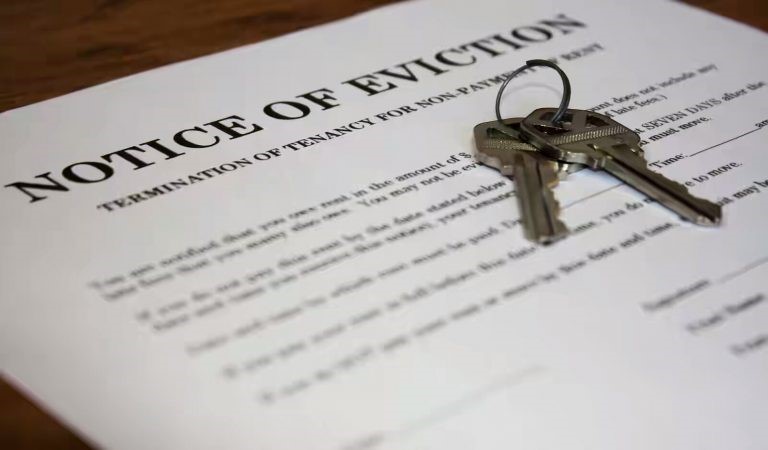Tenant’s Obligation to Pay after an Eviction Notice
Getting an eviction notice can feel overwhelming and stressful, and it is easy to feel like it is the end of the world, without any idea of what to do next. However, if you are contemplating whether you will still be responsible for paying rent after receiving an eviction notice, you are not alone! Many tenants infer they will no longer have to pay rent once an eviction notice has been served.
In many cases, you’re still responsible for paying rent during the notice period, and non-payment can sometimes make things worse if you’re still trying to negotiate. It’s important that you understand your payment obligations, as this helps you avoid extra headaches during an already stressful time. Read along as this post breaks down what you need to know about paying rent after getting an eviction notice.
Difference between Notice to Quit vs Pay or Vacate
When you’re renting, the many documents can be confusing very quickly. You hear words such as “Notice to Quit” and “Pay or Quit.” Although they sound similar, you should know they are not the same thing.
A “Notice to Quit” is any written notice your landlord issues to terminate your tenancy. The landlord may want to reclaim the apartment to use it for himself, your lease may have expired, or again, it may be for other reasons permitted by your lease or local rules. You have to move out by the date specified in the notice unless you have a very good reason to dispute it, but a “Notice to Quit” does not mean that you did anything wrong. In that case, Bay Property Management Group Baltimore encourages tenants to follow legal procedures as part of their obligation.
However, a Pay or Vacate notice is more detailed. It is usually sent when your rent is not paid on time. You have a window of opportunity to resolve the issue, pay the past-due rent within a specific number of days, or vacate the property. Should you fail to do either, the landlord may proceed with eviction. Tenants are still required to pay rent until a formal settlement is discussed. However, a Notice to Quit usually doesn’t provide you the choice to stay, whereas a Pay or Vacate notice can, provided you catch up on your rent.
What Are Tenant Options After Receiving an Eviction Notice?
1. Paying Owed Rent
Although it can be frightening to receive an eviction notice, you could still have choices, particularly if it is for overdue rent. Paying the full amount of the past-due rent within the time frame specified in the notice is one way to avoid eviction. This is sometimes called “curing” the default.
If you are unable to pay the entire amount at once, discuss with your landlord the possibility of making a partial payment while you work things out or a feasible payment plan. Maintaining contact can occasionally buy you time and keep you out of trouble. To protect yourself, don’t forget to get written agreements. You may prevent eviction and maintain a spotless rental record for future housing opportunities when you make your payments on time.
2. Negotiating a Rent Payment Plan
One option that many tenants miss is creating a rent payment plan with their landlord. If you’ve fallen behind on your rent, reaching out to your landlord early to explain your situation and propose a reasonable payment arrangement might show your commitment to catching up.
Many landlords would prefer to negotiate a payment plan rather than face the time and expense of eviction. Make it clear how much you can pay and when, and try to have any agreements in writing to protect both sides. Although it won’t solve your financial problems, it can help you stay in your house, save you time, and lessen stress.
3. Seek Rental Legal Aid
One of the best things you can do after receiving an eviction notice is to apply for rental legal aid. Asking for legal assistance can be frightening, but it can greatly improve your knowledge of your rights and options. Legal aid programs for evicted renters are free or cheap in many states and local communities.
Legal aid lawyers can assist you in verifying the validity of the eviction notice, determining if your landlord complied with the proper processes, and even negotiating an extension of time to vacate or pay back your rent. In the event that your case goes to court, having legal support can also shield you from unjust verdicts and extra costs. Early assistance can reduce stress and provide a clearer path for you to follow during this period.
4. Voluntarily Move Out
Voluntarily moving out before matters escalate is certainly one option. If you are facing some financial issues or are having an unexpected change in your life, moving out on your own may be the best option for now. It allows you to prevent an official eviction on your record, which could result in difficulty renting in the future.
You have the opportunity to protect your credit and possibly work out a deal with your landlord to lower any unpaid rent or other costs by voluntarily leaving. It can be a means to leave amicably and spare yourself the anxiety of going to court. If you go this route, to prevent future disagreements, make sure you acquire any agreements with your landlord in writing and keep a record of the apartment’s condition after you vacate.
Conclusion
Facing an eviction notice is tough, but understanding your obligations as a tenant might help you go through it with less stress. In most cases, you still need to pay rent during the notice period, and staying on top of this can protect your credit and rental history. Whether you decide to pay your pending rent, set up a payment plan, seek legal aid, or move out voluntarily, taking action early is vital to settle things with your landlord.
